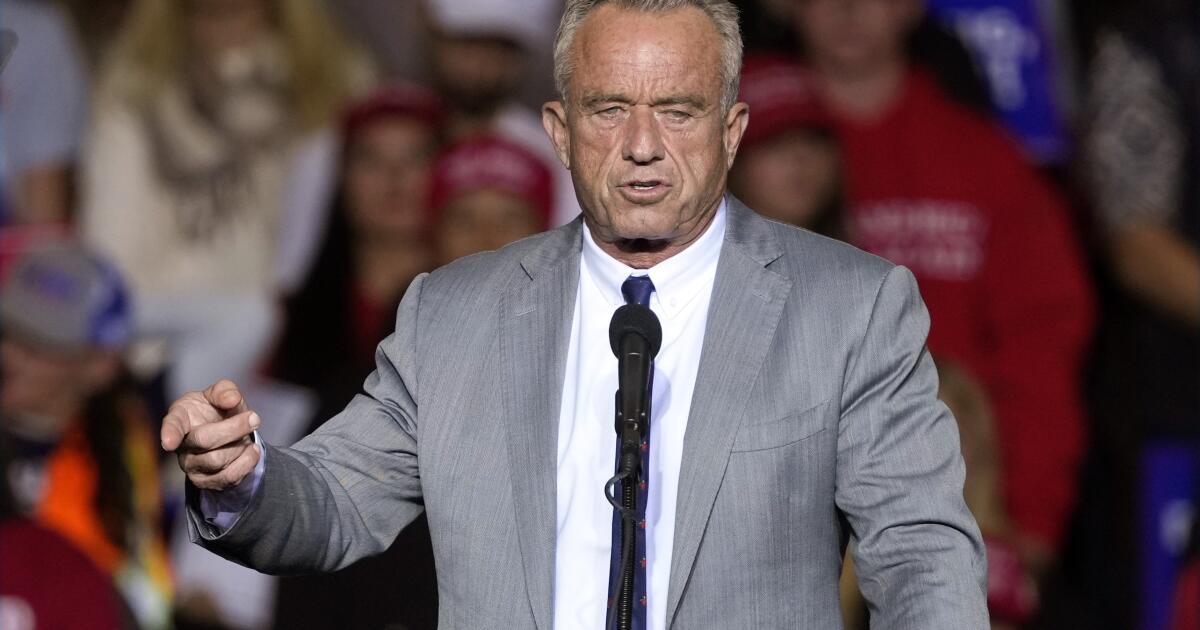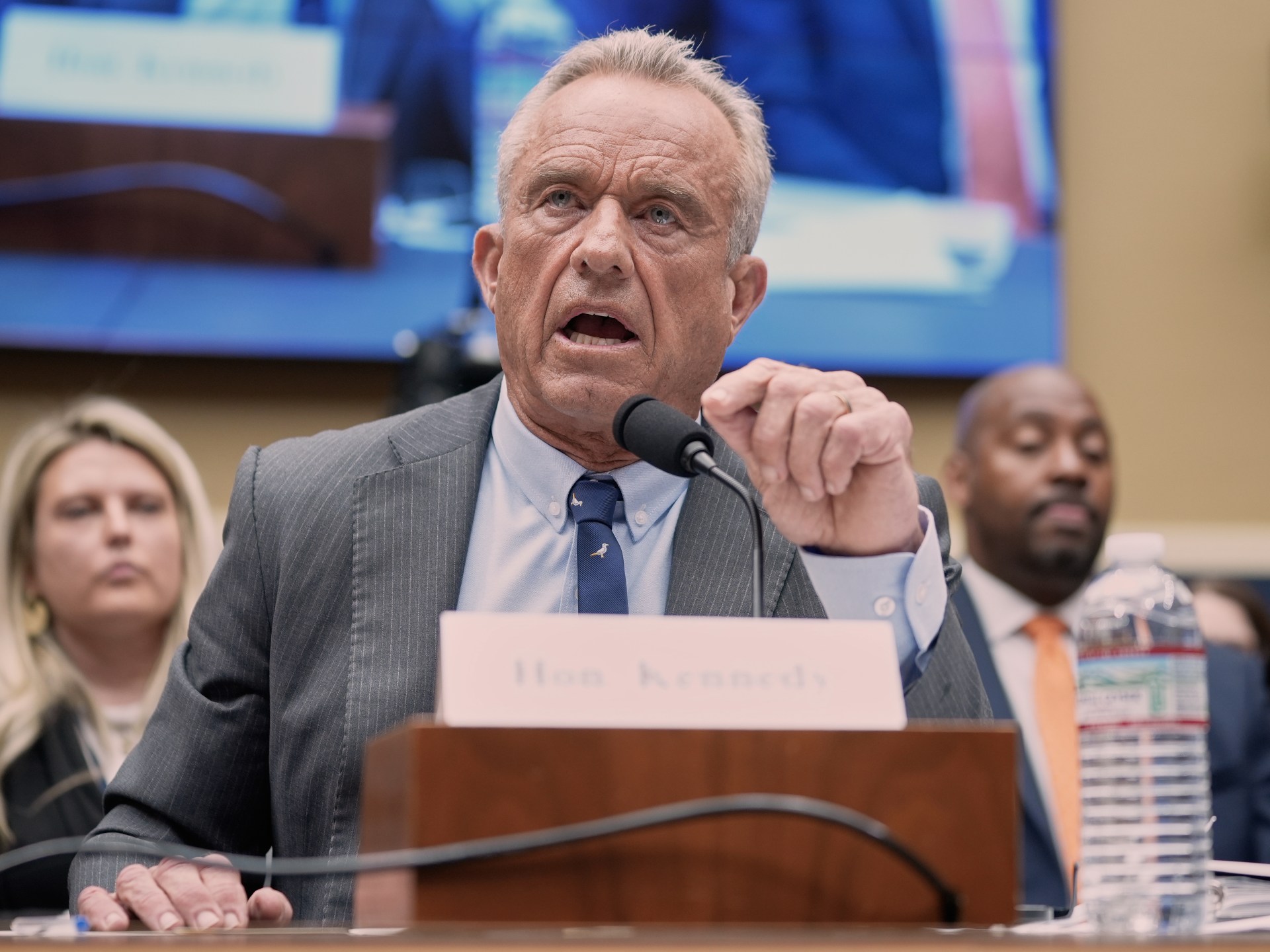Kennedy says U.S. is pulling funding from global vaccine group Gavi
LONDON — U.S. Health Secretary Robert F. Kennedy Jr. says the country is pulling its support from the vaccines alliance Gavi, saying the organization has “ignored the science” and “lost the public trust.”
A video of Kennedy’s short speech was shown to a Gavi meeting in Brussels on Wednesday, where the organization that has paid for more than 1 billion children to be vaccinated through routine immunization programs was hoping to raise at least $9 billion for the next five years.
Kennedy, a longtime vaccine skeptic, mentioned Gavi’s partnership with the World Health Organization during COVID-19, accusing them of silencing “dissenting views” and “legitimate questions” about vaccine safety. His speech also cast doubt on the diphtheria, tetanus and pertussis vaccine — which WHO and other health agencies have long deemed to be safe and effective.
Gavi said in a statement Thursday that its “utmost concern is the health and safety of children,” adding that any decision it makes on vaccines to buy is done in accordance with recommendations issued by WHO’s expert vaccine group.
Some doctors in the United States criticized the decision. Dr. Paul Offit, director of the Vaccine Center at the Children’s Hospital of Philadelphia, said it was “incredibly dangerous” and warned that defunding immunization would put millions of children at risk.
Gavi is a public-private partnership including WHO, UNICEF, the Gates Foundation and the World Bank, and it is estimated that the vaccination programs have saved 18 million lives. The United States has long been one of its biggest supporters; before President Donald Trump’s reelection, the country had pledged $1 billion through 2030.
In just under four minutes, Kennedy called on Gavi “to justify the $8 billion America has provided in funding since 2001,” saying officials must “consider the best science available, even when that science contradicts established paradigms.” Kennedy said until that happens, the U.S. won’t contribute further to Gavi.
The health secretary zeroed in on the COVID-19 vaccine, which WHO, Gavi and other health authorities have recommended for pregnant women, saying they are at higher risk of severe disease. Kennedy called that a “questionable” recommendation; his U.S. Centers for Disease Control and Prevention recently stopped recommending it.
He also criticized Gavi for funding a rollout of a vaccine to prevent diphtheria, tetanus and pertussis in poorer countries, saying he’d seen research that concluded that young girls who got the vaccine were more likely to die from all other causes than children who weren’t immunized.
Gavi said scientists had reviewed all available data, including any studies that raised concerns, and that the diphtheria, tetanus and pertussis vaccine has “played a key role in helping halve childhood mortality.”
Some observational studies have shown that vaccinated girls do have a higher death rate compared to unvaccinated children, but there is no evidence the deaths are caused by the vaccine. But Offit said the studies cited by Kennedy were not convincing and that research examining links between vaccinations and deaths did not prove a causal connection.
“There’s no mechanism here which makes biological sense for why the [diphtheria, tetanus and pertussis vaccine] might result in more children dying,” Offit said.
Doctors Without Borders on Thursday predicted “countless children will die from vaccine-preventable diseases” as a result of the U.S. withdrawing support for Gavi.
“To invoke misleading and inaccurate claims about vaccine safety as the pretext for cutting all global vaccine funding is cruel and reckless,” said Mihir Mankad, the charity’s global health advocacy and policy director in the U.S. “When we vaccinate in the community, parents line up for hours to give their children a chance to be protected from these deadly diseases.
“For these children, vaccination programs … are a matter of life and death.”
Kennedy’s recorded speech to Gavi came on the same day that his reconstituted U.S. vaccine advisory panel met for the first time. He fired the previous 17-member panel this month and replaced it with a seven-member group that includes several vaccine skeptics.
Cheng writes for the Associated Press. The Associated Press Health and Science Department receives support from the Howard Hughes Medical Institute’s Department of Science Education and the Robert Wood Johnson Foundation. The AP is solely responsible for all content.

